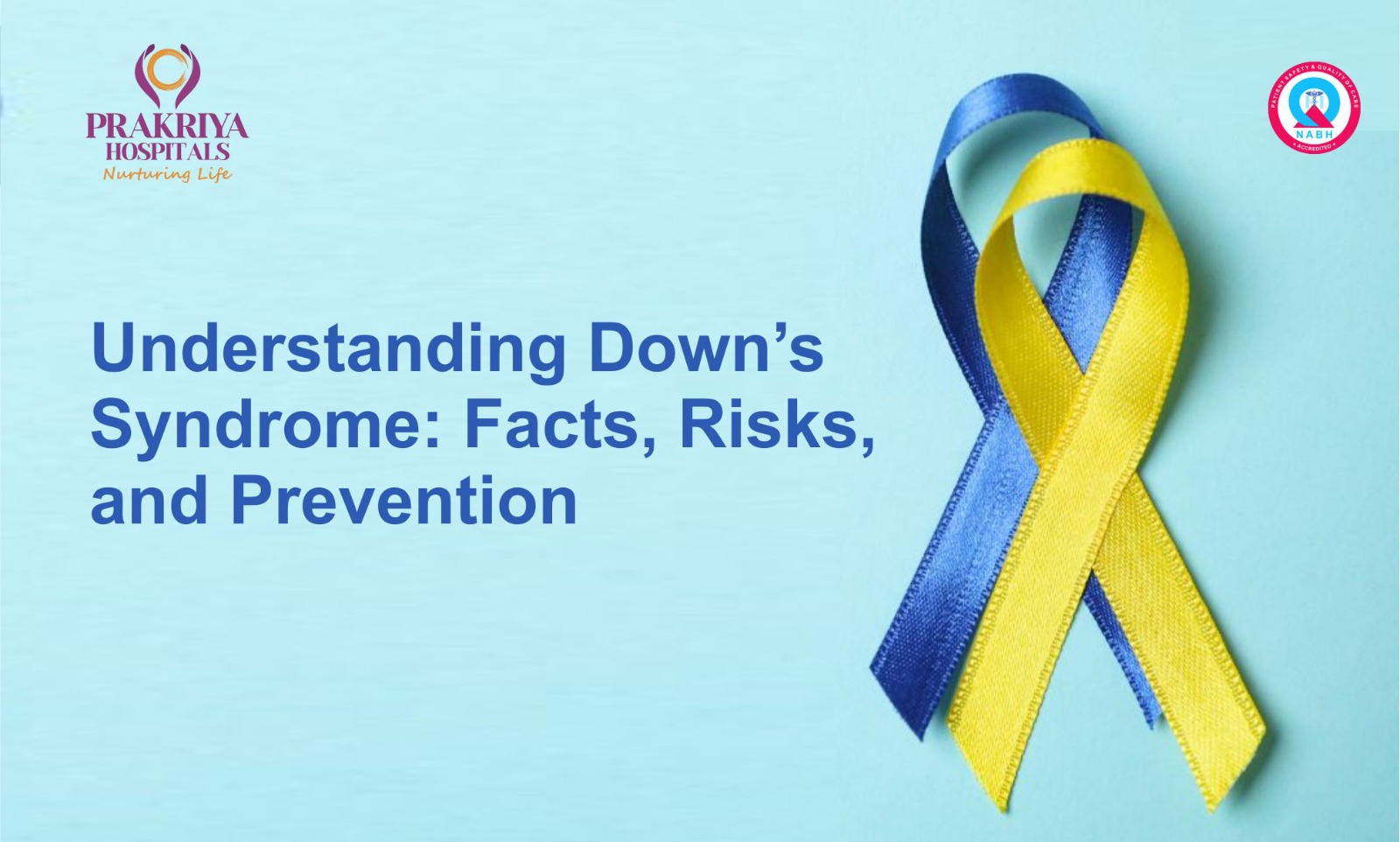Down’s Syndrome is the most common chromosomal condition worldwide. Despite the medical advancements, it continues to affect thousands of families every year and requires both awareness and timely screening.
Key Facts About Down’s Syndrome
- Incidence: About 1 in every 800 live births globally.
- In India: Nearly 40,000 babies are born with Down’s Syndrome every year.
- Universal occurrence: It is not linked to race, nationality, religion, or socio-economic background.
- Age factor: Interestingly, 80% of children with Down’s Syndrome are born to parents under the age of 35.
- Gender: It affects boys and girls equally.
Types of Down’s Syndrome
There are three types of Down’s Syndrome:
- Trisomy 21 (95%) – An extra copy of chromosome 21.
- Translocation (4%) – A part of chromosome 21 attaches to another chromosome.
- Mosaicism (1%) – A mixture of cells, some with an extra chromosome 21 and others without.
Health Concerns Associated with Down’s Syndrome
Children with Down’s Syndrome may face higher risks for:
- Congenital heart defects
- Respiratory problems
- Hearing difficulties
- Thyroid disorders
- Childhood leukemia
Early detection and specialized medical care can significantly improve quality of life.
Can Down’s Syndrome Be Prevented?
While it cannot be entirely prevented, early screening and prenatal testing play a vital role in diagnosis and management.
Recommended Screening Methods:
- Universal Screening: All pregnant women, irrespective of age, should undergo testing.
- First Trimester Combined Screening: Preferred as it offers a higher detection rate than second-trimester tests.
- Chorionic Villus Sampling (11–13 weeks) or Amniocentesis (after 16 weeks): For genetic analysis.
- Chromosomal Microarray (CMA): Helps in detecting chromosomal abnormalities.
- Rapid Aneuploidy Tests (PCR): Quick detection of chromosome changes.
- Non-Invasive Prenatal Screening (NIPS): A safer alternative using maternal blood.
- Karyotyping (Post-birth): Confirmation test after the child is born.
Final Thoughts
Raising awareness about Down’s Syndrome is essential for reducing stigma and ensuring timely medical care. With proper screening, early interventions, and supportive therapies, children with Down’s Syndrome can lead fulfilling and meaningful lives.
Dr Shivakumar Manvi
MBBS, MD (Paediatrics)
lead consultant, Department of pediatrics
Prakriya Hospitals














